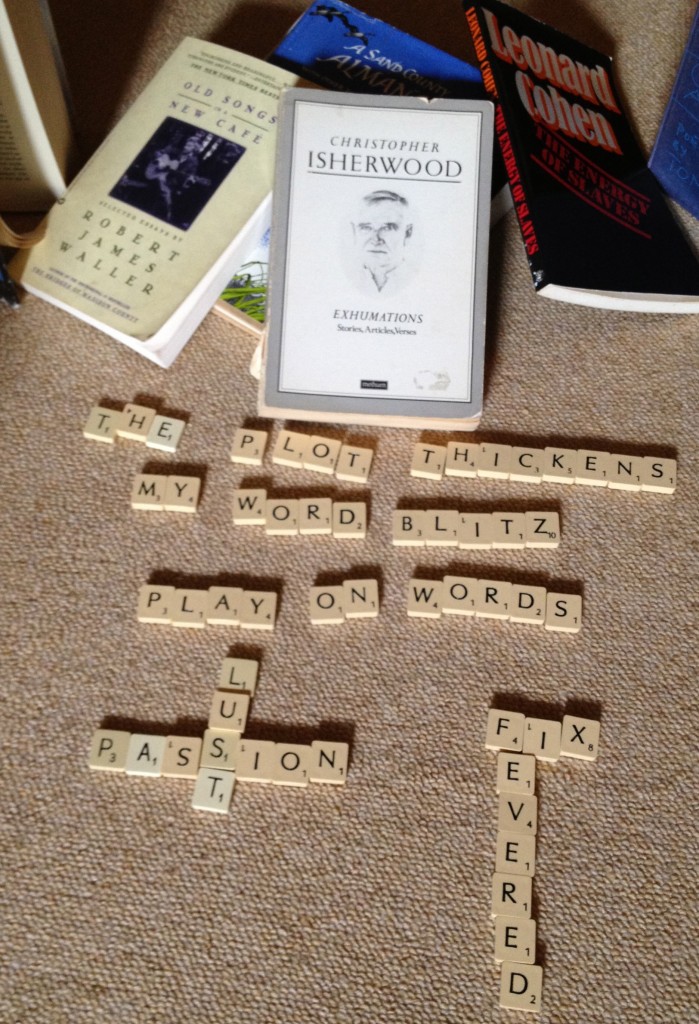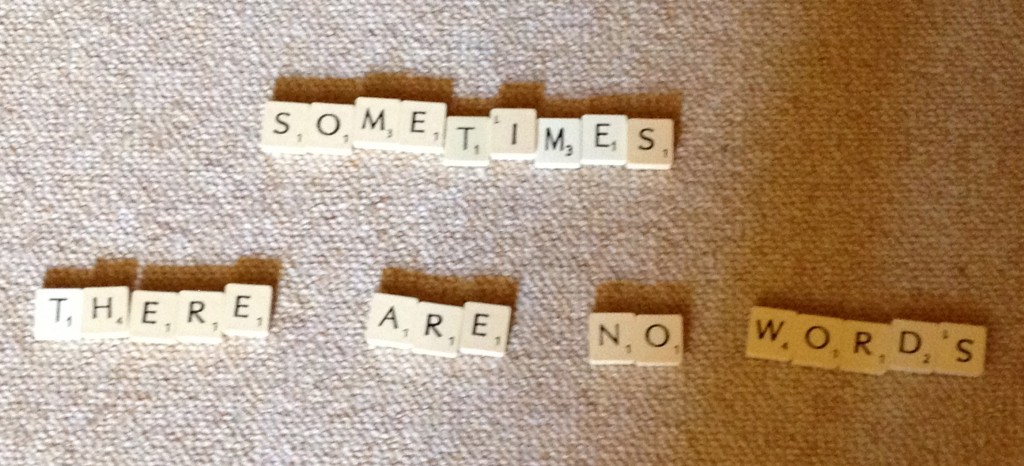The basic schedule of this retreat, (on the days we aren’t heading out on a major outing) is writing group in the morning, free time all afternoon between lunch and dinner, and writing class in the evening. Open afternoons are important—they give people time to digest, to integrate, to spend time alone, to enjoy new friends, to catch up on sleep, to hike, to explore, to walk to town, to sightsee, to shop, to have adventures alone, or of course, to write. Downtime is crucial because writing class can be intense, evocative, and at times, exhausting.
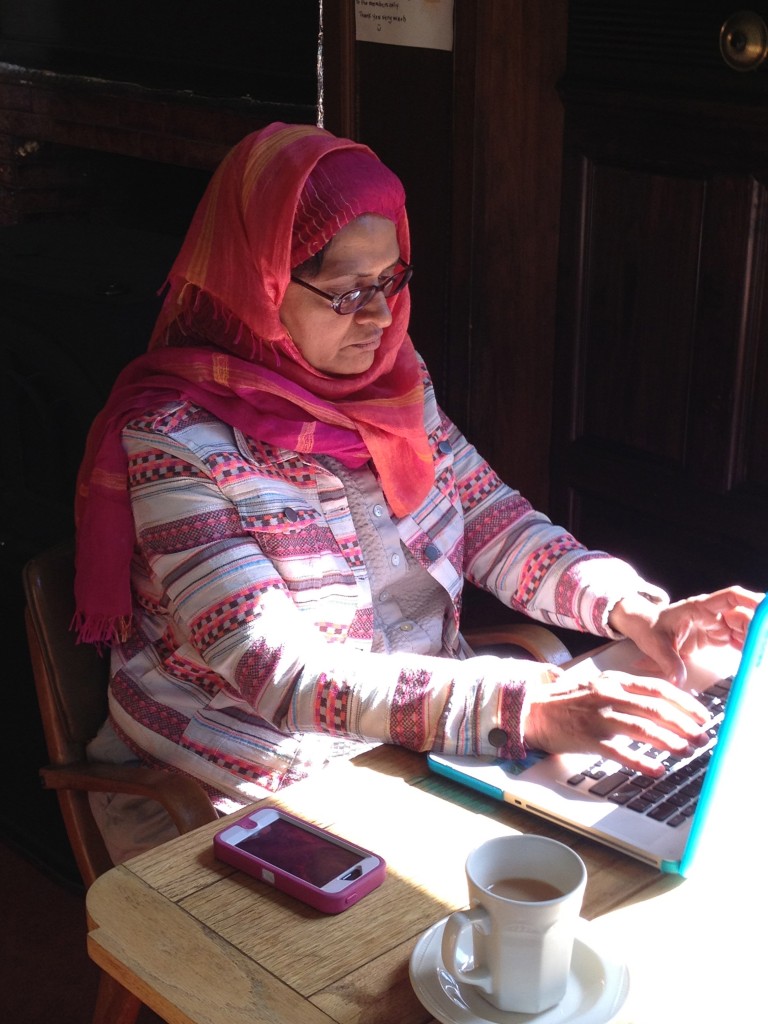
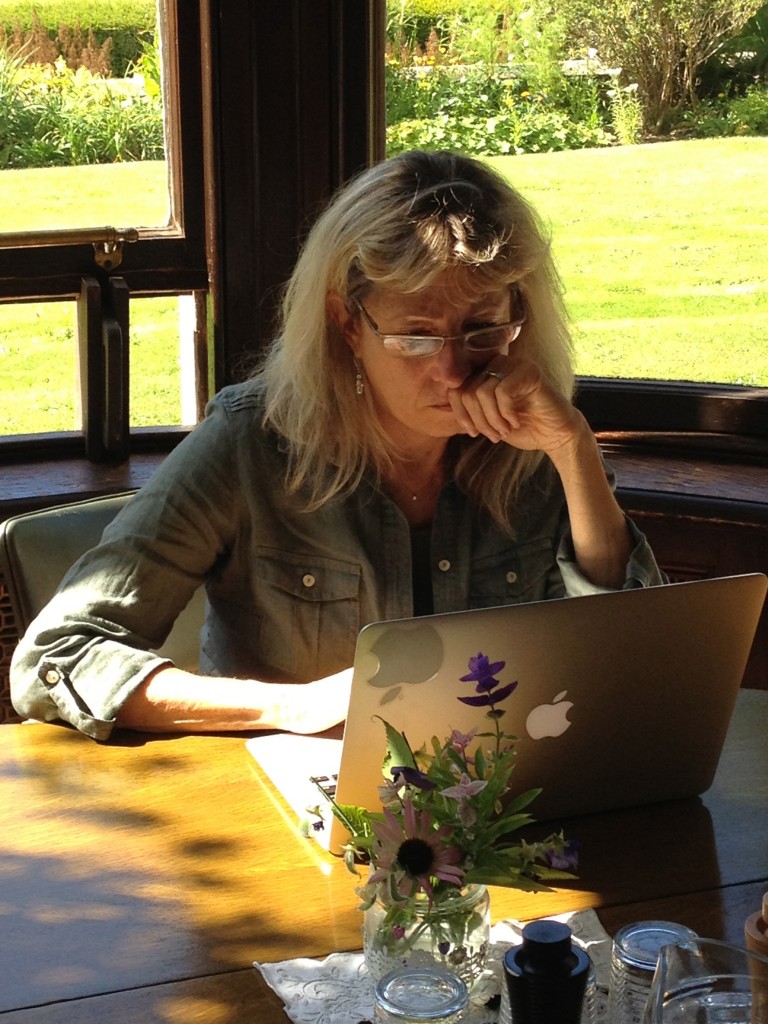
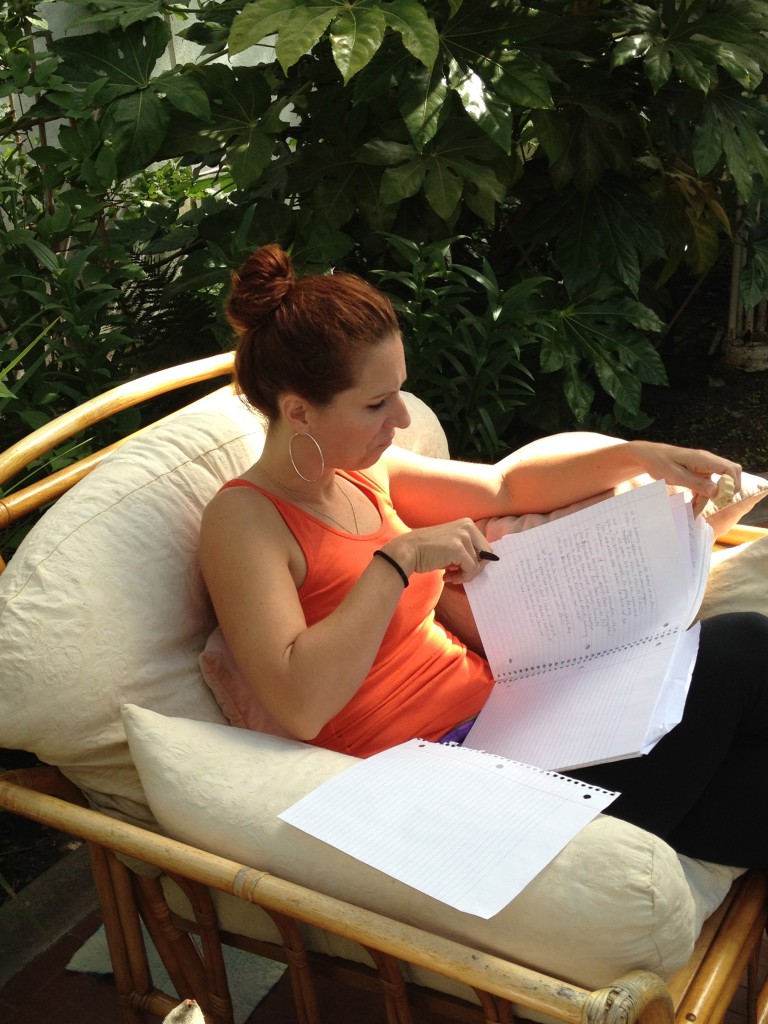
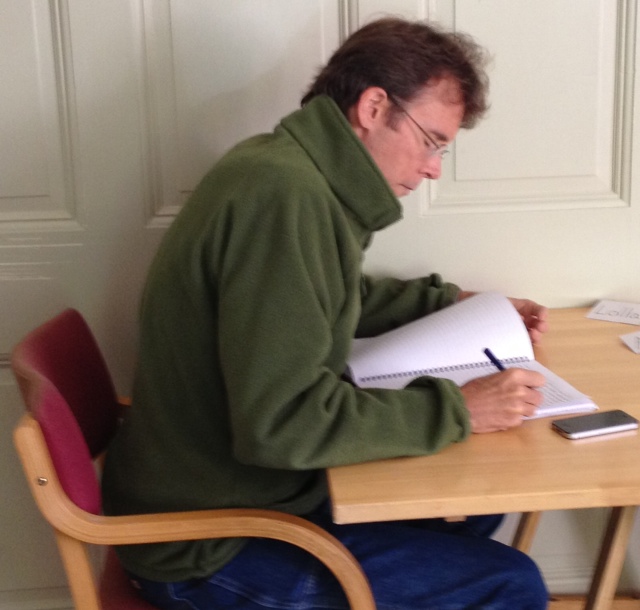
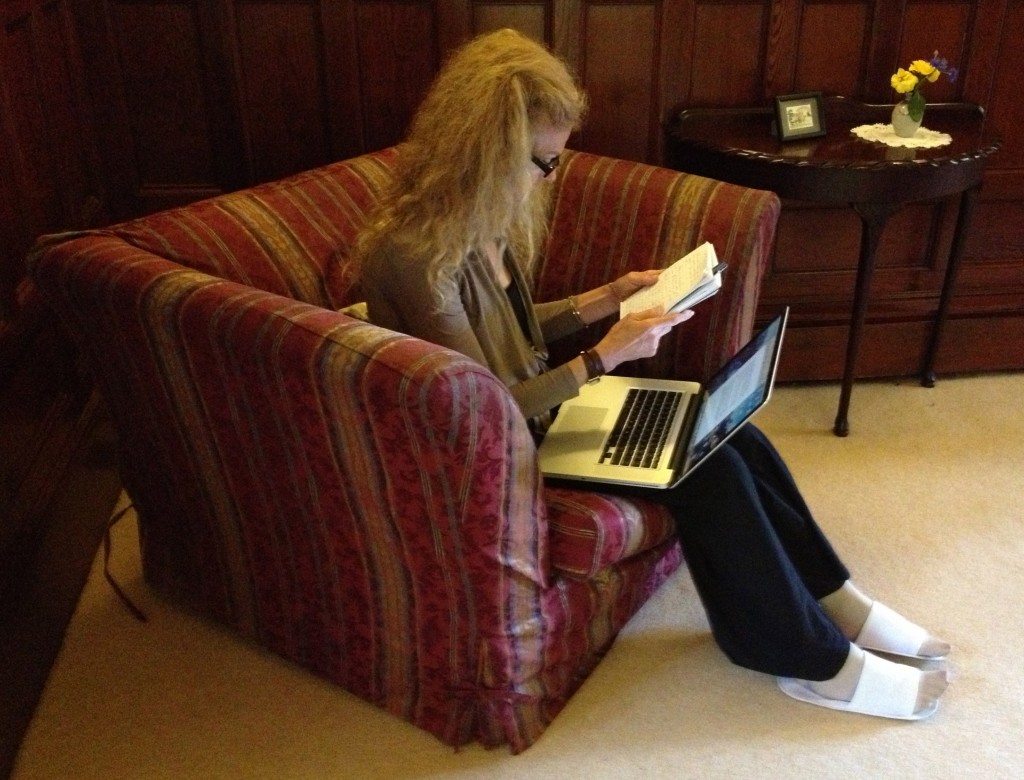
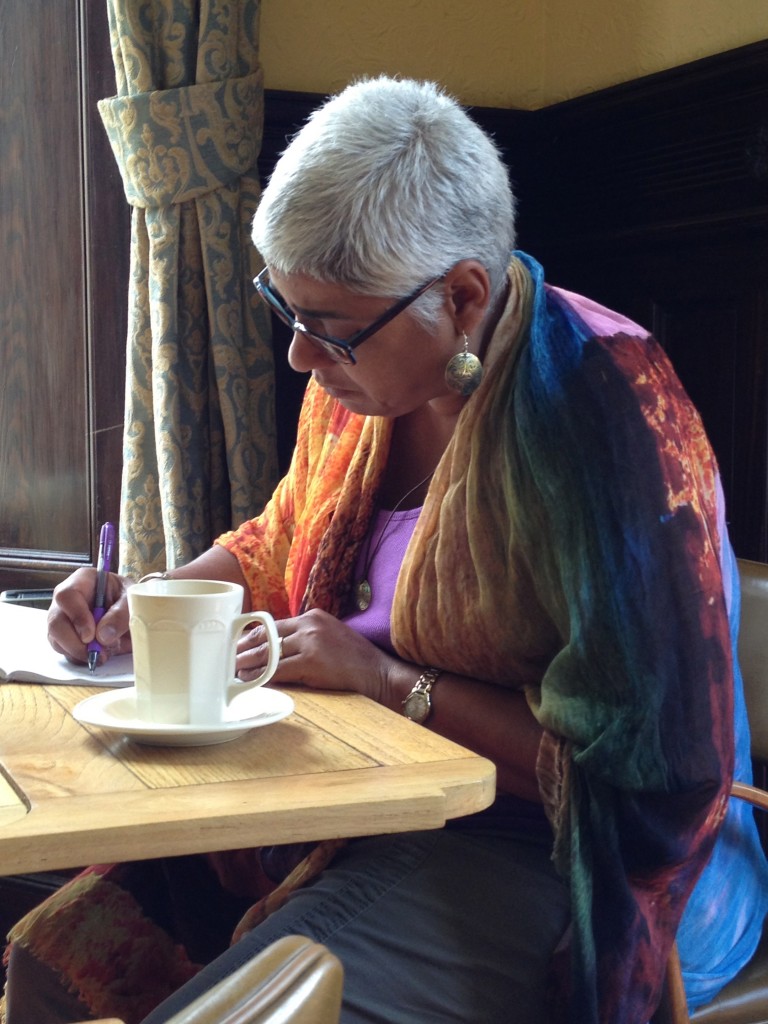
Most afternoons I nap, check my email, go for a walk, work on my blog posts, and plan for the next class. But yesterday, a week after arriving at Newbold House, I decided to simply relax. I got a lesson in how to use the washing machine, did a sorely needed load of laundry, and hung my clothes out on the line. I loved using clothespins for the first time in two decades, knowing that my shirts and pants, socks and underwear would smell like the fresh Scottish air. I usually consider laundry a chore, but yesterday it was a pleasure. Why? Because it made me feel like this was my home. I had truly settled in.
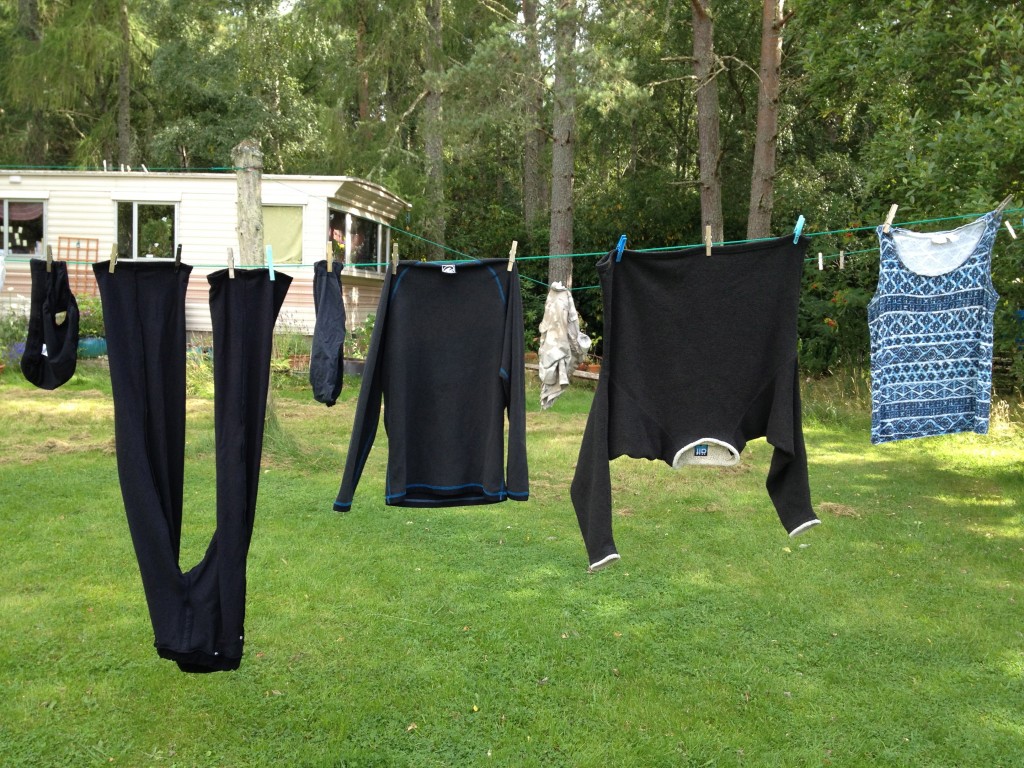
I also savored two back-to-back games of Scrabble, a luxury I rarely give myself in my busy life at home. Talin and I are well matched and I enjoyed playing with some of her slippery new rules.
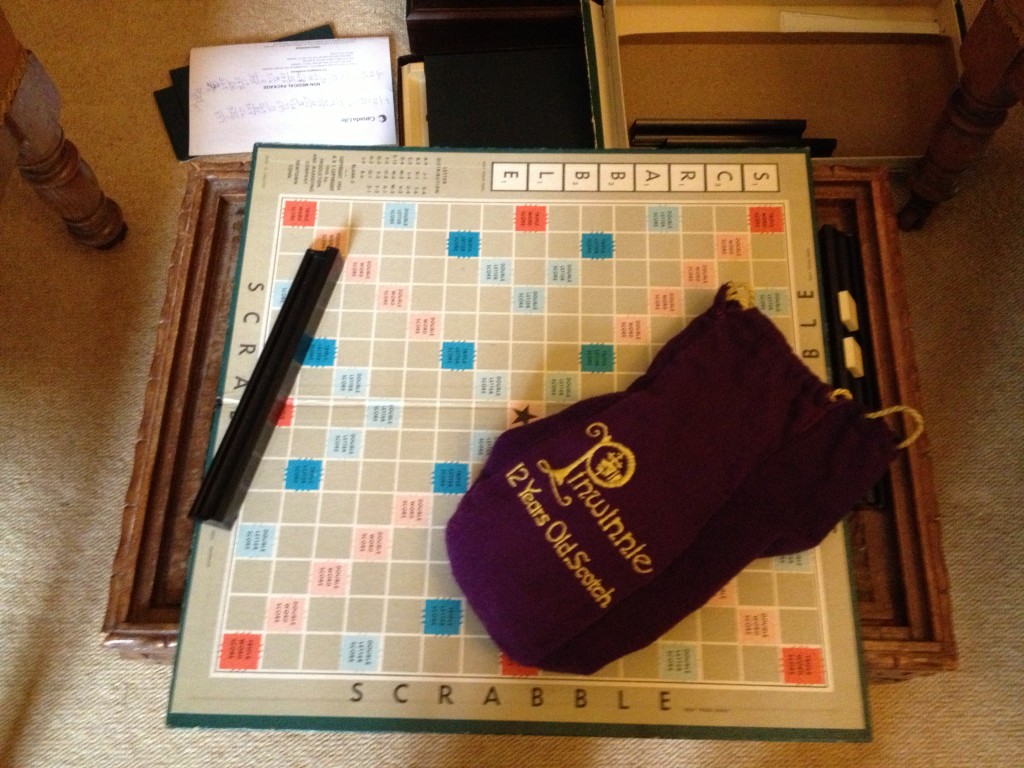
After our games, I used a packet of the locally made tea bags for the bath:
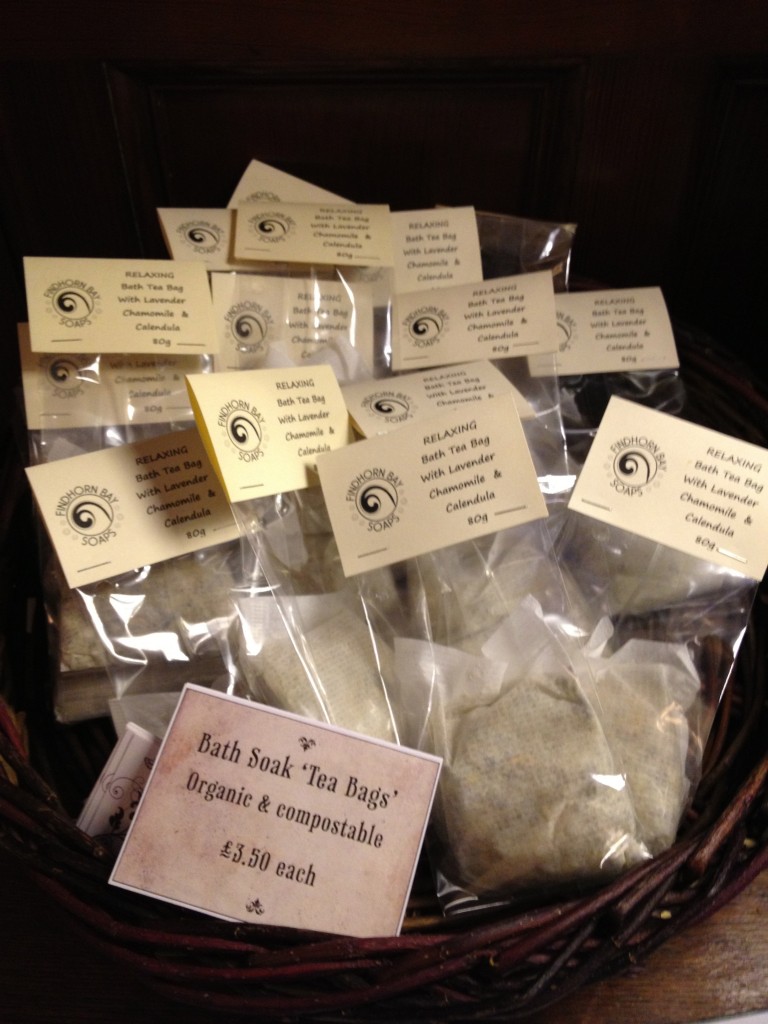
And soaked and read a novel in this great big old tub.
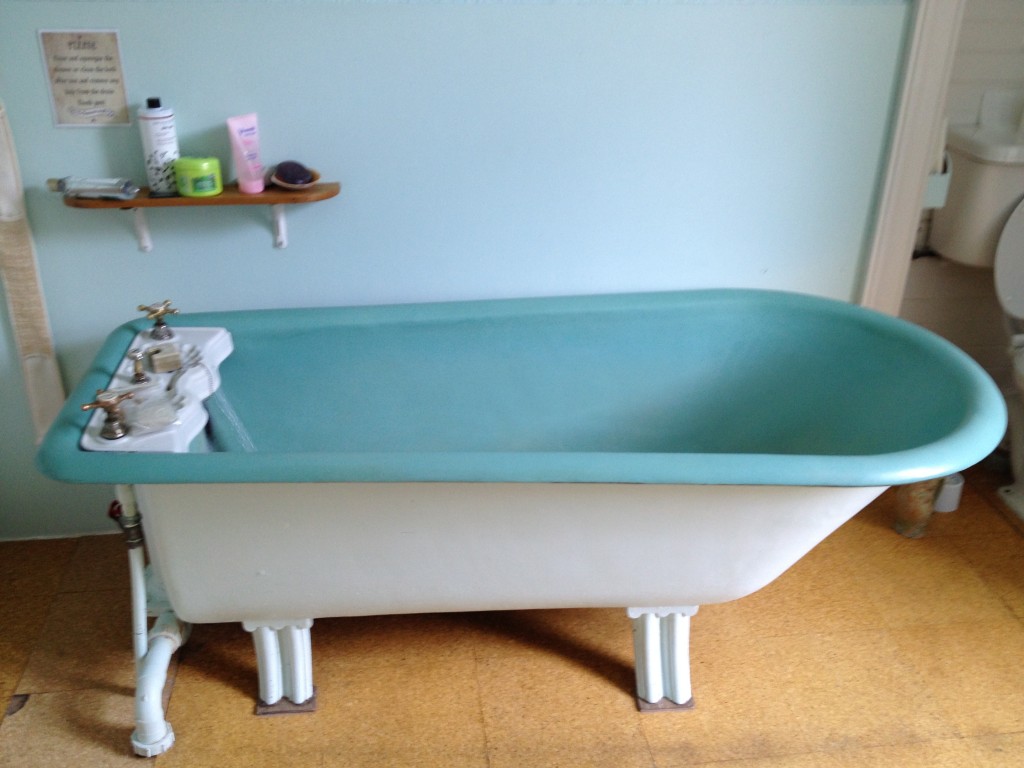
Afterwards, I went out for a stunning late afternoon walk through fields of heather, woods of white birch, oak, and red pine.
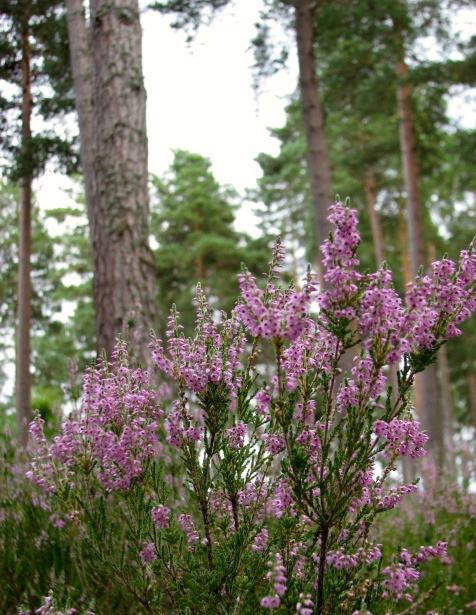
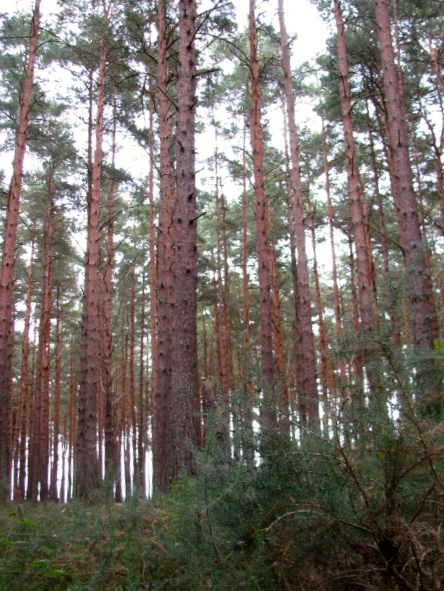
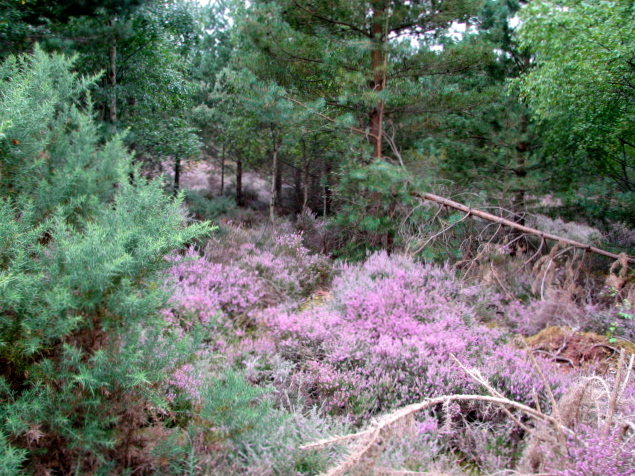
The woods opened up into vast fields of barley. I’d never walked through a sea of barley before. It was pure magic.
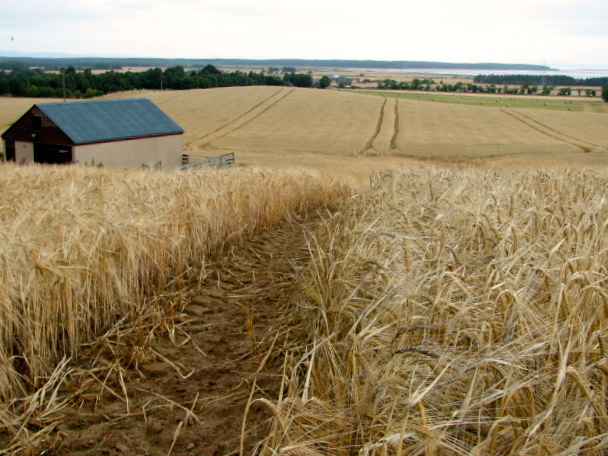
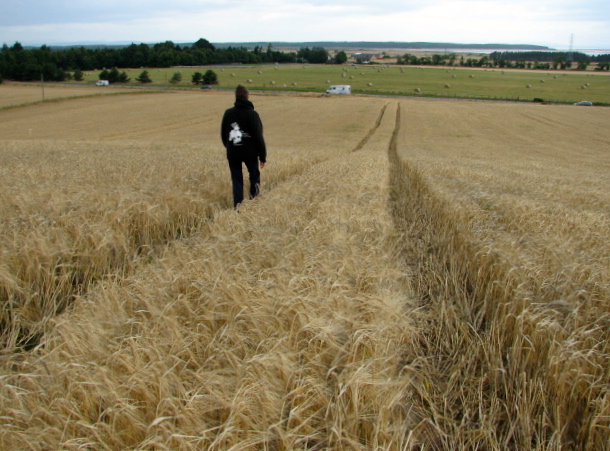
I returned to Newbold just before the dinner bell (yes, there is a dinner bell!). I pulled my warm, sun-dried clothes off the line and put them away, then sat at one the large communal tables in the dining room to eat.
There was a warm buzz in the room. The retreat was humming along. My students have bonded into a caring, close community, and the secret I’m going to share with you is that I love building community more than I love teaching writing. No wonder I felt so happy.
And then there is Newbold House itself. The staff here is responsive, welcoming and warm. They help create the environment in which all of us can open up and thrive.
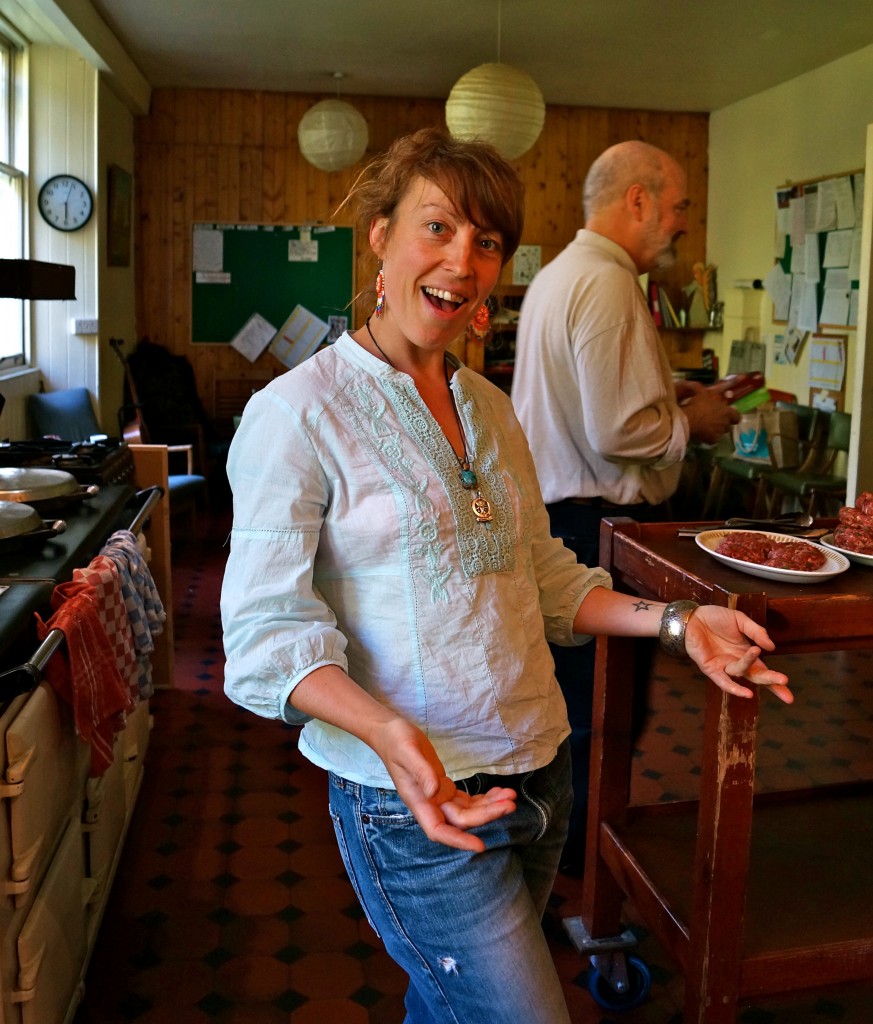
When Robyn first suggested Newbold House as our site, she stressed that one of the great benefits of having the retreat here was that my students would get to experience being a living, breathing part of a sustainable community. One of the blessings of being here, she enthused, was that people could actively participate in the Newbold community, experiencing “Love in Action” first-hand. Guests can volunteer to work in one of the four work departments that keep the house running smoothly: homecare, maintenance, gardening, and cooking. I couldn’t imagine that any of my students would pay to come to a retreat and then volunteer to spend their “free” afternoons harvesting beets, cooking their own dinner, or washing dirty towels, but being a polite person, I didn’t say so.
But once I’d been here a week, volunteering to work no longer seemed implausible. In fact, I wanted to get to know the staff better and to experience “Love in Action.” So I told the head chef, Seth, that I wanted to volunteer in the kitchen.
When I arrived downstairs for my work shift this afternoon, Seth and Mary told me we needed to go to the store. So I climbed into the front left seat of Mary’s little red Peugeot. While Seth went to the butcher shop, Mary and I headed over to the Tesco supermarket, chatting about our lives along the way. A trained nutritionist and massage therapist, Mary told me she had been the manager of Newbold House for nine years and had resigned on four different occasions. Now she comes in twice a week to help out in reception and cook.
The best part of living at Newbold, she said, is meeting all the incredible people who pass through here: guests and volunteers alike. The hardest part? Living and working in the same environment.
Mary has a lovely Glasgow accent and I asked her question after question just so I could hear her talk. She could have been reading from the phone book and I would have been entranced. When she said my name, “Laura,” my God, the way it rolled off her lips! And when I asked her what we were buying, and she rattled off the shopping list: “Kellogg’s Cornflakes, lemons, Worcestershire sauce, bananas, grana badano (a parmesan-like cheese), and toilet rolls,” I was in auditory heaven.
As we walked through the store, there were signs like this highlighting locally-produced products:
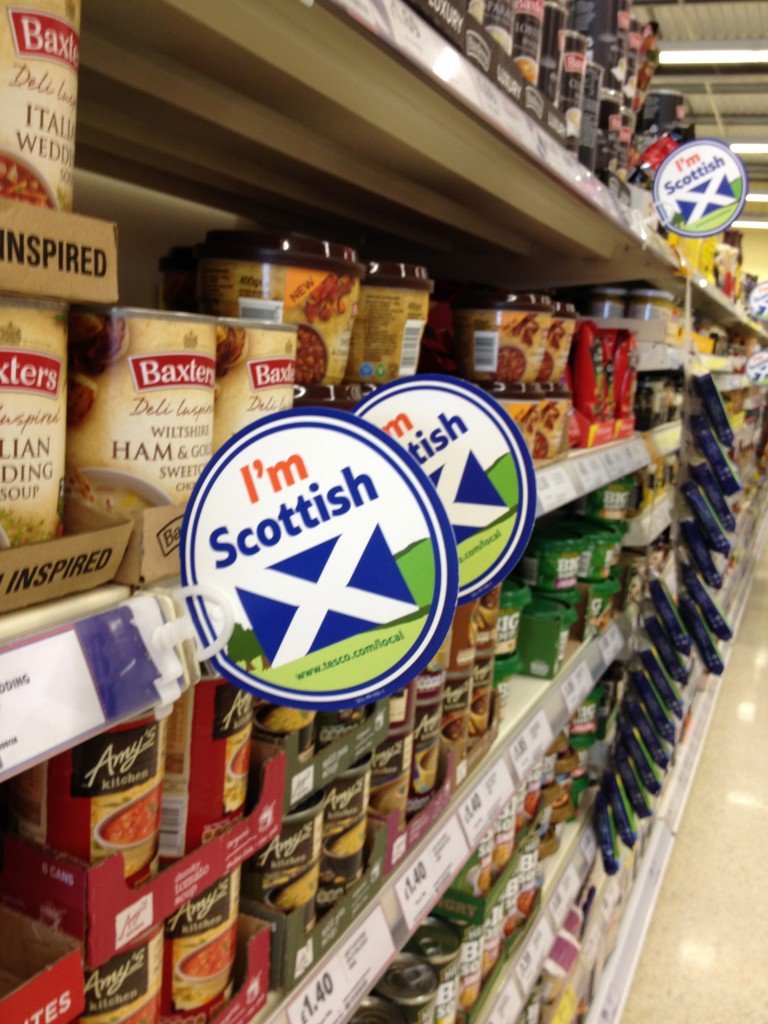
Mary asked me if we could see cigarettes in the store in the U.S. I wasn’t sure what she was talking about until she motioned to this display, or lack of display:
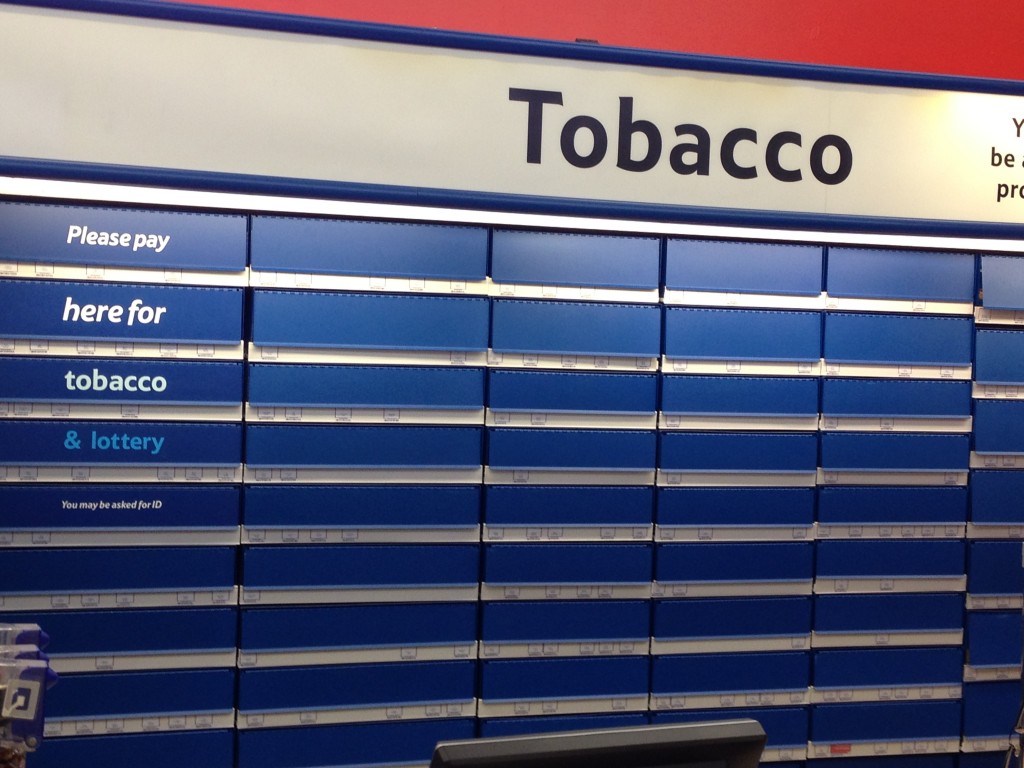
“They’re not allowed to show the cigarettes here,” she explained. “They’re bad for you, so no advertising of any kind is allowed.” So in Scotland, seeing a cigarette box is considered advertising and is a definite no-no. Strangely enough, the same thing definitely doesn’t hold true for whisky. This is a display I’ve never seen in a supermarket back home:
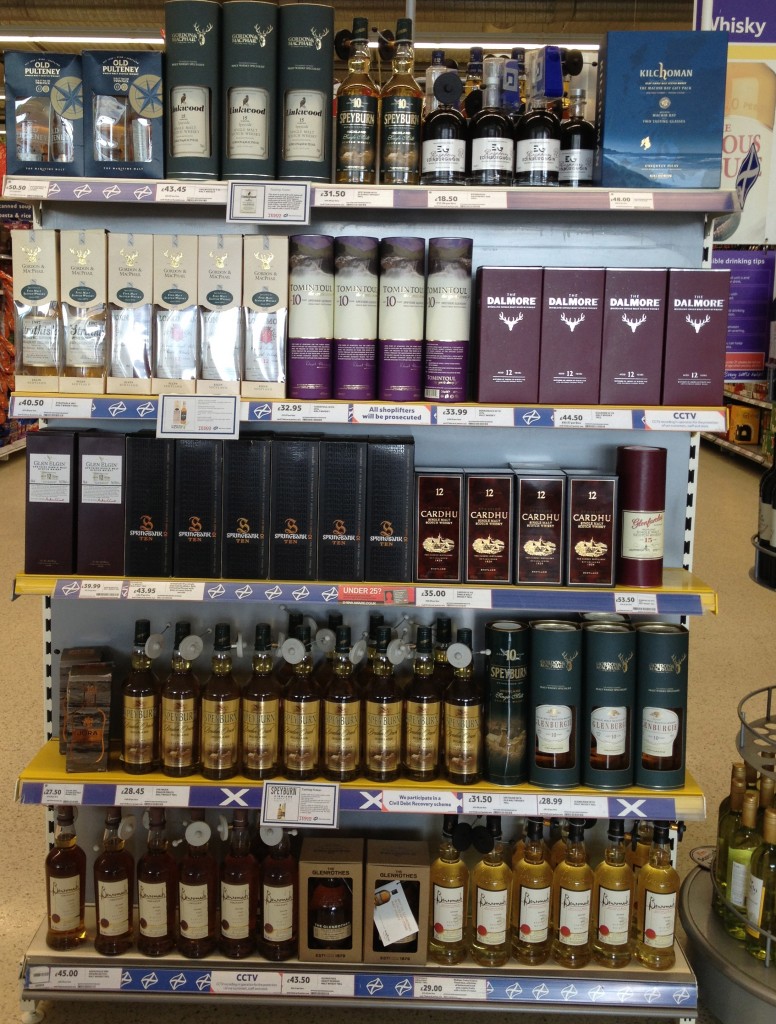
After we purchased our groceries, we drove over to meet Seth at Macbeth’s Traditional Scottish Butcher and Game Dealer.
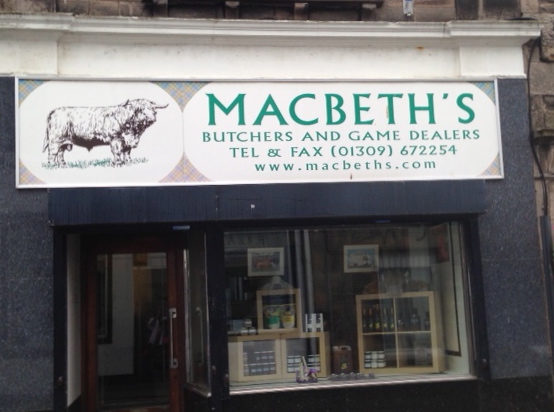
Inside the meat case were were dark venison sausages, rabbit, and the first grouse of the season:
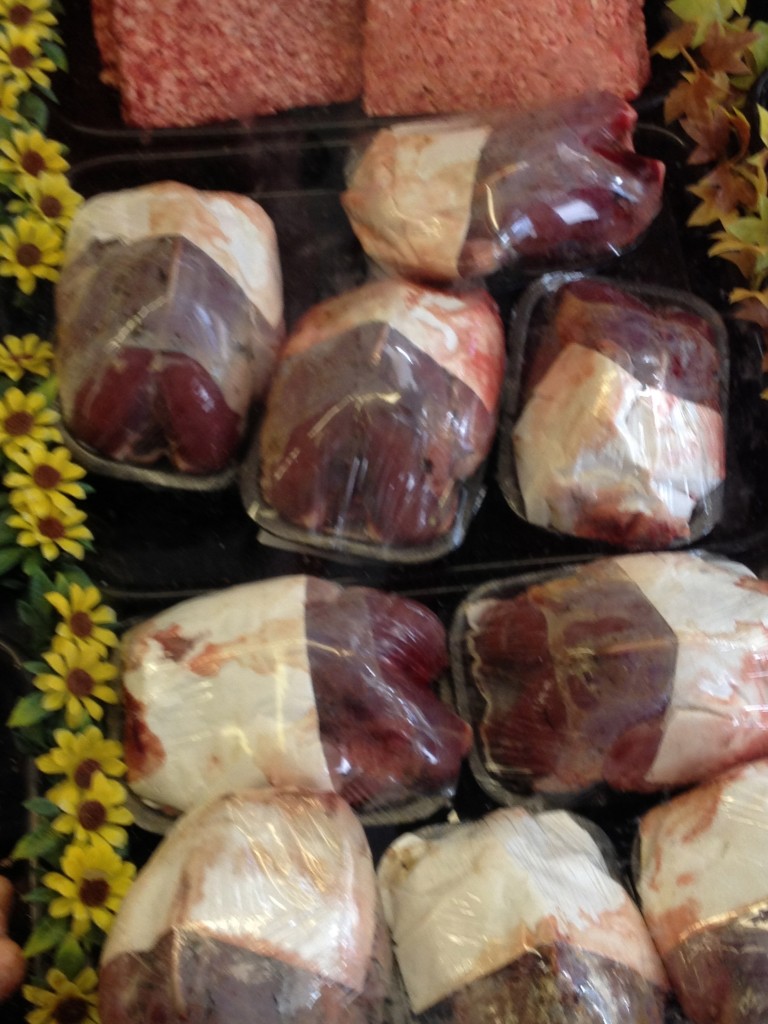
Seth told me that all the meat at this butcher shop comes from Highland grass fed cattle, sustainably raised. And then he pointed out two items I haven’t yet have the nerve to taste, both Scottish favorites: white pudding and black pudding. The ingredients on the black pudding include pork, bacon, oatmeal, blood, suet, salt, pepper and rusks. When I asked what rusks were, I was told it was a filler like oatmeal.
We brought our steak mince (fresh ground beef) back to Newbold to make chili. I put an apron on and Seth put on a CD called The Great American Songbook, perhaps in my honor. It included songs by Glen Miller, Frank Sinatra, Tony Bennett, Ella Fitzgerald, The Coasters, Marilyn Monroe, Sam Cook, Billie Holiday, Bing Crosby, and Fats Domino. Mary and Seth and Dominic and I worked companionably alongside one another, listening to music and chatting about our lives.
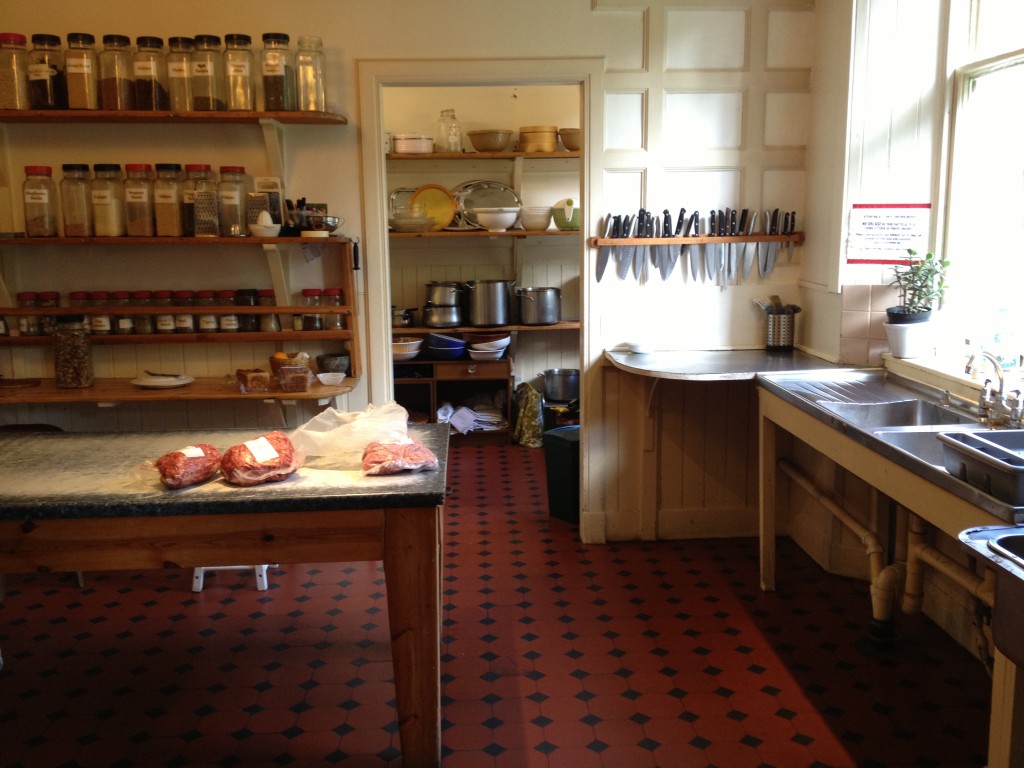
It had been a few decades since I’d worked in a commercial kitchen, but I enjoyed the rhythm (and even the tears) of chopping twenty onions, a huge stack or courgette (zucchini), handfuls of hot red peppers, and a mountain of mushrooms. At one point, Seth sent me out to the garden to pick six heads of lettuce. That’s when you know your salad is really fresh:
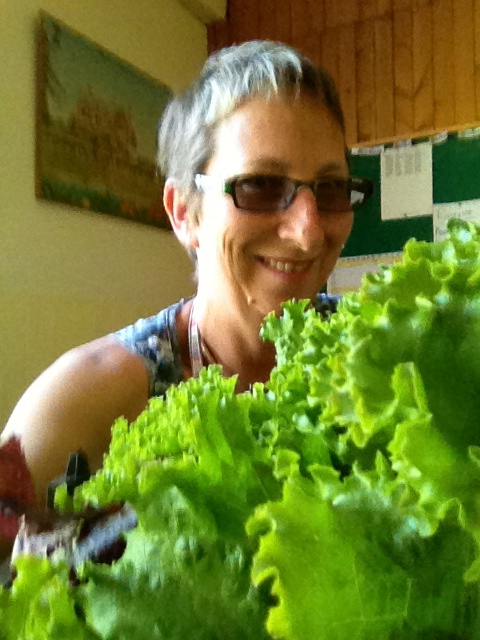
I spent the next hour washing it and spinning it dry to the music of Buddy Holly. Fifteen minutes later, I was sent out for flat-leaf parsley:
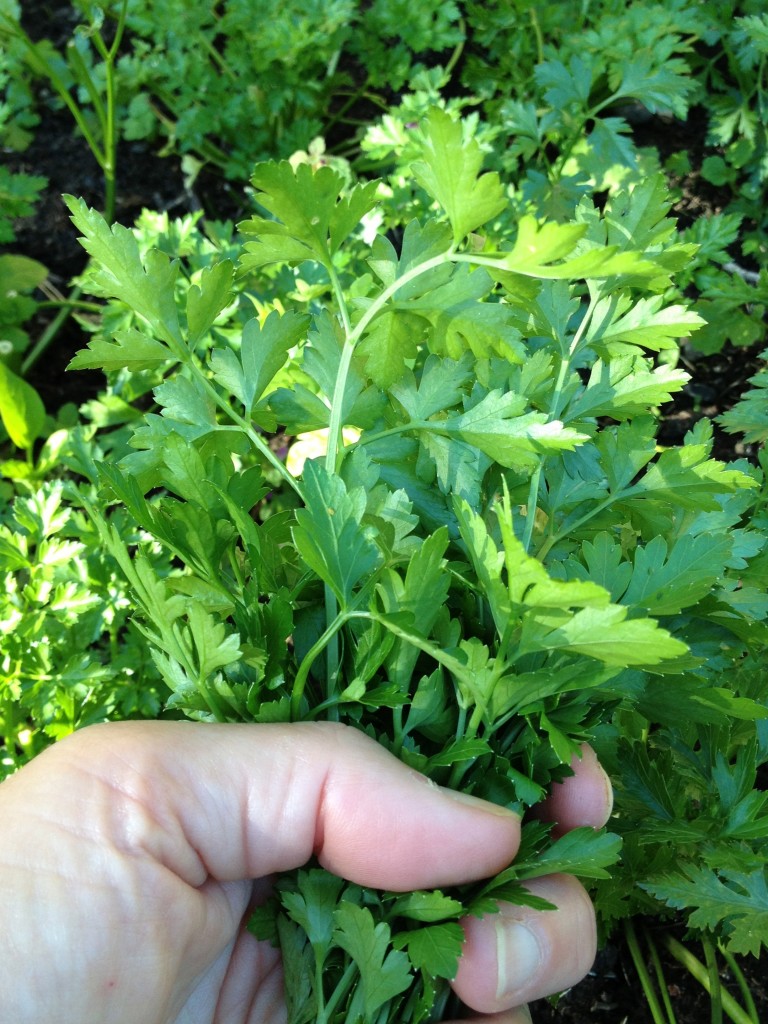
Here’s Mary putting the final touches on the salad dressing:
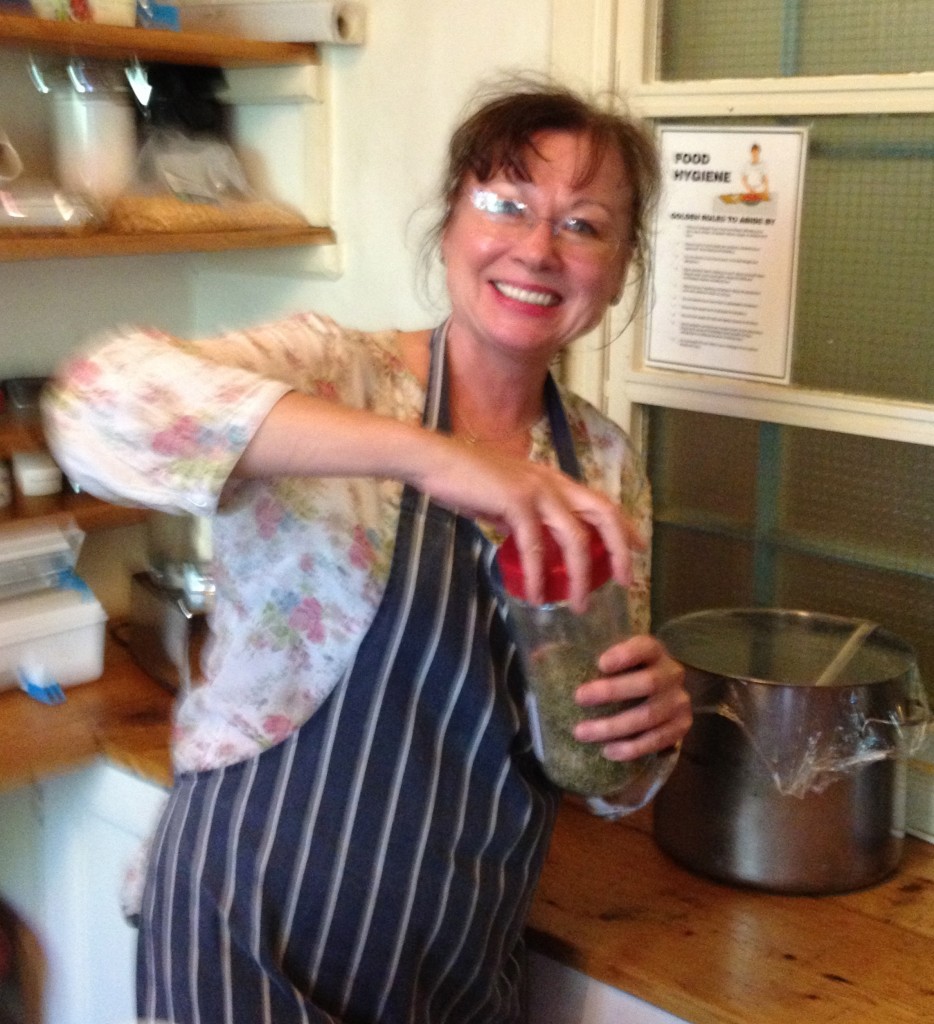
Here’s Seth declaring that the chili was done:
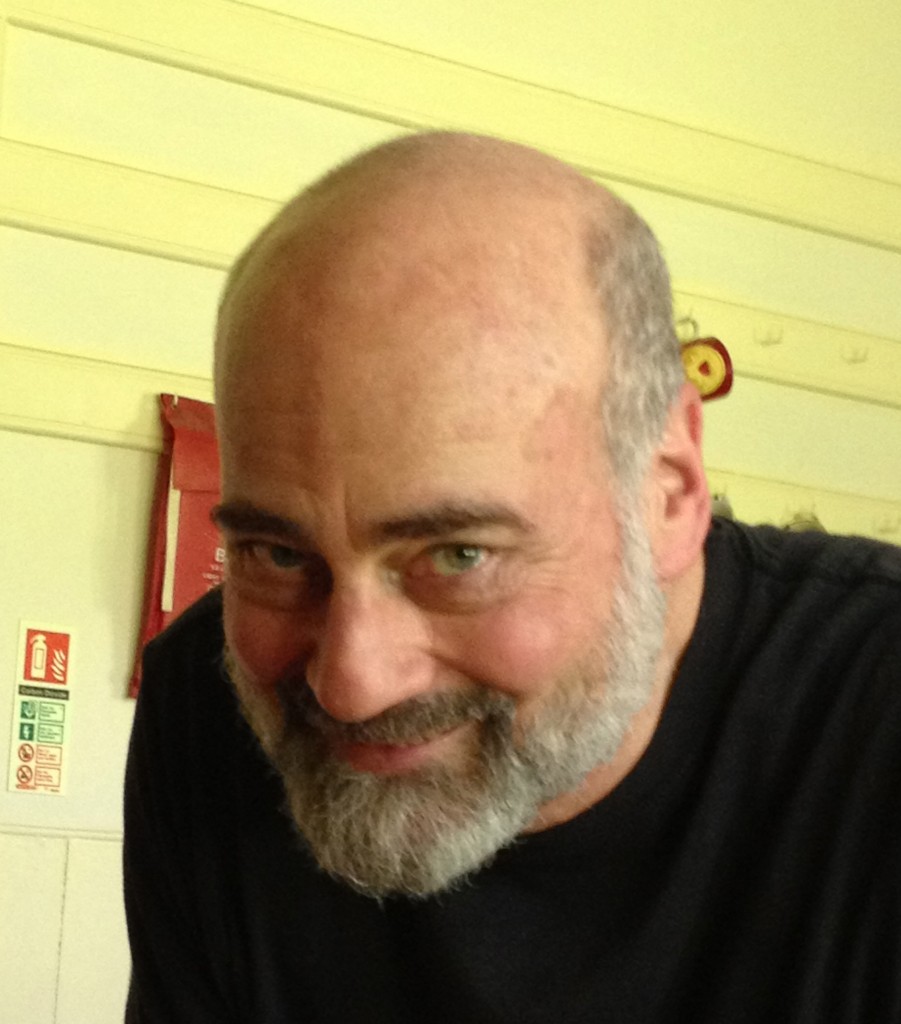
When I came into the dining hall for dinner, I felt proud and happy. And the food tasted better because I knew I’d had a hand in preparing it. It felt good to know I was feeding everyone—not just in mind and spirit, but now, in body as well.
P.S. Oh, yes—the Scrabble fairy has visited me two more times, leaving behind gifts of letters for the teacher.
